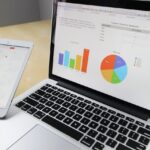
Running a local business is no walk in the park. A limited target market, tight budget, and delicate reputation mean you must always keep your eye on the ball. That said, your audience, finances, and word of mouth alone are not always enough to succeed. You need a steadfast marketing strategy to ensure longevity and success as a local business.
Understanding where and when to implement your marketing efforts is essential. As the saying goes, when you market to everyone, you market to no one. Instead, you only want to focus on a local customer base interested in your products and services.
That is where local SEO enters the equation.
We sat down with the managing director of Bristol SEO agency Superb Digital, Paul Morris, to discuss what we mean by local SEO, why it matters, and where to place your efforts if you’re struggling to wrap your head around the subject or wondering which aspects of your campaign to target, this guide will be useful.
What is meant by local SEO?
If you’re a complete newcomer to the local SEO world, you must understand what it is and how it works.
The good news: as long as you know SEO stands for search engine optimization, the rest is easy enough to discern. That’s because local SEO is about targeting a local market with your website content via search engines. The better your local SEO efforts, the more traffic, brand awareness, and leads you gain from local searches.
You cannot overlook the importance of local SEO. Based on research, “local intent” is responsible for 46% of Google searches. In addition, almost half of people using Google seek information about local businesses.
As a result, there’s a lot of opportunity for your business to be found by your target audience through local SEO. However, there’s also a notable concern: if your rivals perform better with their local search efforts, your site’s content will be buried into obscurity – and you won’t be found through relevant searches by potential customers.
Google Search results for local search success
As far as those ‘search engines’ are concerned, there is generally just one you are targeting with local SEO: Google. It’s the biggest search engine, and its algorithms are more refined for accurate, relevant local search results.
Another positive of local SEO with Google is that the search function works normally. When a person inputs a query, the Google index is scanned through to supply them with the best results, just as it would for a more general search.
However, several unique ranking factors are used for local SEO. These factors include everything from the searchers’ location to keywords in a company’s online reviews. These ranking factors are covered in more detail in the next section.
The Local Pack
Also known in marketing circles as “The Map Pack,” The Local Pack is the main target for anyone hoping to achieve maximum results with their local SEO efforts.
Even if you’ve never heard of The Local Pack, you have seen this Google function. It appears at the top of the search results page, showing a relevant selection of three business results. These businesses are spotlighted above the organic search results, and their location is noted on Google Maps.
Say you did a “hairdressers near me” search. Google would then pull out three hairdressers they feel most relevant to your location. To be in with a shot of landing in The Local Pack, there are specific ranking factors, such as NAPs, you need to target.
Local organic rankings
Local organic rankings are still relevant when it comes to local SEO. Yes, the priority is the Local above Pack. Yes, organic results appear below the Local Pack. Yet there is still value in acquiring a lofty position within organic local search rankings.
As with any normal Google SERP, you need to think about optimizing your pages with high-quality content, keywords, the right page structure, etc. The more this is done, and you appease Google’s latest search criteria, the more likely your website will feature prominently in local organic rankings.
What are the key rankings factors?
There are traditional SEO tactics that can assist with your local search efforts. For instance, backlinks and relevant keywords containing your target locations can give your website that added sparkle to catch Google’s attention. With that said, there are specific local search ranking factors that require your attention most.
Here is a list of the key ranking factors for local SEO:
- Google Business Profile: A Google Business Profile is a free tool that acts as a business listing on the search engine. The GBP dictates the appearance of your business across Google Maps, Google Search, and even Google Shopping.
- NAPs: NAP stands for name, address, and phone number. Google uses these details to confirm your business information is correct.
- On-page signals: Extending on from NAP data, other vital on-page signals include a strong domain authority and the use of relevant local keywords in titles.
- Online reviews: Reviews customers post about their personal experiences with your company.
- Citations: Citations act in a similar way to backlinks. They are used to verify your NAP data is consistent across different websites and platforms.
- Behavioral signals cover individual actions such as the click-through rate and how long users spend on your website.
As mentioned, certain factors, like your Google Business Profile and NAPs, are key for targeting the Local Pack. Yet these factors still come into play with local organic SEO – and vice versa with the main elements for local organic targeting. For example, reviews are seen as more important for the Local Pack than local organic, but these reviews still support the latter.
What to prioritize?
An efficient local SEO strategy is about knowing which campaign aspects to prioritize. So, what does it take to get your website in prime fighting shape?
Paul has pushed his fair share of local businesses to the top of the search rankings and offered some insightful suggestions:
Learning how to build local backlinks effectively
It’s true: backlinks remain an integral cog for the local SEO machine. When posted by high-authority websites, these backlinks supply your content with credibility in the eyes of Google. This leads to your site being pushed up the search rankings.
As you would expect, these are not just backlinks on any platform. They need a local focus for the best results. While this can be trickier than normal, think about gaining as many local citations as possible. You can also research your competitors to see what sources they are using for local backlinks.
Optimize your Google Business Profile
As mentioned above, your Google Business Profile is essential to your local SEO strategy and you know what is the difference between SEO and Local SEO before optimizing your google business profile page. That said, doing the bare minimum with this profile isn’t enough. Your business profile should be optimized to include accurate business information, including your location on Google Maps and images relevant to your business.
Similarly, making a few changes and hoping for the best won’t cut it either. It is recommended that businesses remain active with this profile. That includes making frequent posts that provide updates about what your business is doing. Of course, if a user asks a question about your business, ensure you answer this swiftly and in detail.
Generate citations
Naturally, as part of your link-building efforts, you will gain citations. Even having a GBP will help in that regard. Yet you should explore as many avenues as possible to build up those citation numbers. Easy ways to do this include using the following:
- Bing
- Foursquare
- Apple Maps
- Yell
- Yelp
Positive reviews
We needn’t emphasize the importance of positive reviews for your business. They act as social proof that you deliver the quality and services customers expect when selecting your company over other options.
Regarding local SEO, the more customer reviews you have, the better. A large collection of reviews demonstrates you receive a lot of trade and have a loyal customer base. Still, they also contain natural keywords, which Google uses to learn more about your business and how it pertains to local search results.
While it may sound strange, you don’t want your Google Business Profile to be wall-to-wall with five-star reviews. A few critical reviews here and there can be helpful for your local SEO cause. Google says that a business with both positive and negative reviews appears more trustworthy than one which only receives glowing feedback.
NAP consistency
Your business name, address, and phone number (NAP) must be consistent across all platforms. If your Google Business Profile lists a specific NAP, these details must be matched on Bing, Yell, and Facebook.
If there is inconsistency with the NAP, this confuses the one entity you don’t want to confuse: Google. As a result, your website may be penalized, lowering its chances of featuring high up in local search results.





